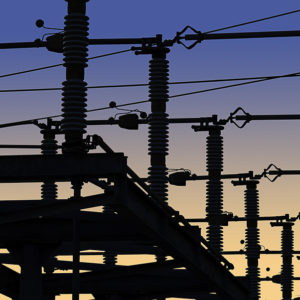When Thomas Edison flipped the switch to turn on the world’s first electricity generation station on Pearl Street in Lower Manhattan in 1882, he launched a new era in human history. Today, over 140 years later, the Electricity Era has transformed human civilization.
Electricity has become the lifeblood of our world. The grid that makes and delivers this power has been called the greatest machine ever built. Protecting our way of life means safeguarding that grid if – to paraphrase Ben Franklin – we can keep it.
The stability of the electric grid is more than a matter of having enough electricity. The grid must also possess inertia, which, in simple terms, means the built-in stability of the power system, helping it cope with changes and disturbances. Think of riding a bicycle. When you pedal, you give the bike some momentum. Even when you stop pedaling, the bike keeps moving for a bit because of that momentum.
Electrical grid inertia resembles the momentum of the bike. In an electrical grid, when power is generated and sent through the wires, it creates a kind of ‘energy-momentum’ that helps keep the system stable. Maintaining this momentum requires big machines that spin like the wheels on a bike.
The big machines on our electrical grid today are hydroelectric and steam-driven turbines, and the momentum they provide is called grid forming. Solar and wind electricity generation, by contrast, are grid-following and require expensive advanced inverters to provide grid frequency regulation and voltage control. And even with advanced inverters, solar and wind contribute to grid instability by being intermittent.
Grid instability can come from surprising corners. The headlong charge to fix our planet’s climate produces many short-sighted national and regional public policies that often have unexpected consequences. For example, the Federal Energy Regulatory Commission (FERC), The North American Electric Reliability Corporation (NERC), and many of the country’s Regional Transmission Operators (RTOs) have been warning that closing existing power plants before suitable replacements are online jeopardizes the reliability of the grid. When those premature closures affect the health, safety, and welfare of the citizens of New Hampshire, the state has a duty to protect its population and needs the tools to do so.
A bill recently passed by the New Hampshire House provides a tool to provide that protection. HB1623 enshrines in state climate policy that all forms of energy “without preference toward technology type” shall be valued. It further asserts that New Hampshire will allow market forces to drive the efficient deployment of energy resources and will pursue energy efficiency using cost-effective fiscal policies, while balancing energy reliability, affordability, and utility financial stability.
Most importantly, the bill provides that the state can exercise its 10th Amendment sovereign rights to fight any regulatory overreach that could endanger New Hampshire’s in-state energy resources. Such regulatory overreach, as numerous judicial actions have shown, can imperil an in-state electricity producer with involuntary closure.
The bill allows a generator facing mandates that make its “continued operation economically infeasible” to notify the Department of Energy. The department shall then open an investigatory proceeding to determine the effect of an involuntary closure on the reliability and affordability of the state’s energy resources. The department could subsequently recommend that the attorney general consider joining or initiating a legal proceeding to protect the generator.
This protection may seem unnecessary at first glance. But consider the following actions taken recently by regulators:
· Halting the permitting of new liquified natural gas (LNG) export terminals
· A new EPA rule on particulate matter that affects power generation as well as trucks and autos
· Lower methane standards that affect pipelines and power generators
· Bureaucratic delays that tie up energy infrastructure projects
· State bans on gas stoves
These regulatory edicts can directly affect a generator’s financial viability.
Bills like HB1623 can provide relief from overzealous regulation and ensure that our electrical grid remains stable and reliable.




